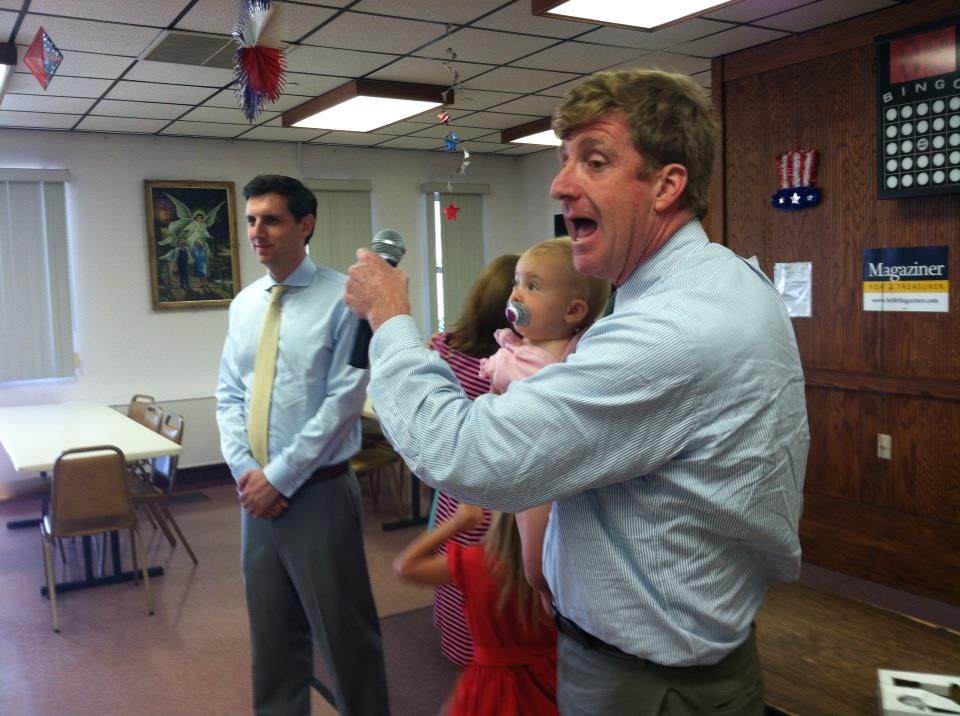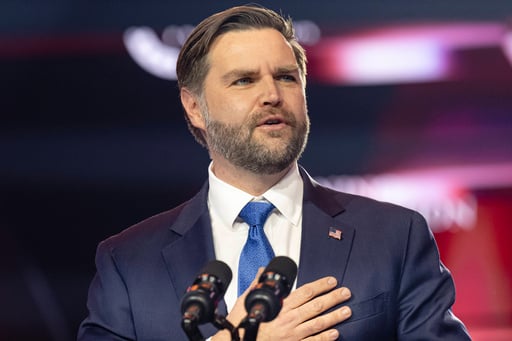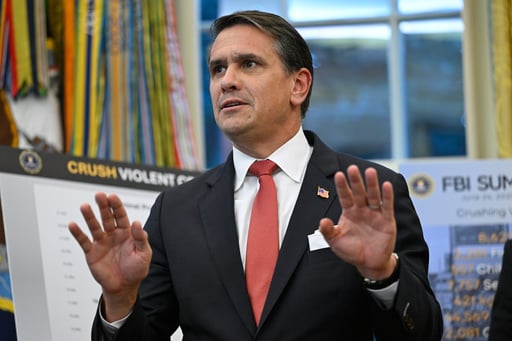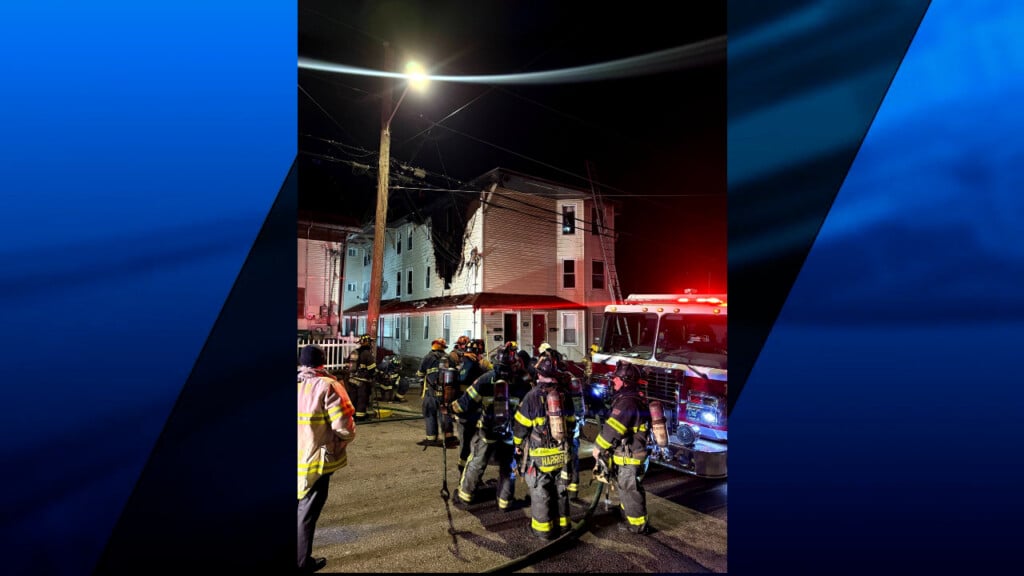“The Sunday Political Brunch” – by Mark Curtis August 17, 2014

Twitter: @markcurtisABC6
email: mcurtis@abc6.com
“The Sunday Political Brunch” — August 17, 2004
(
“The Kennedy Name” – Former Congressman Patrick Kennedy (D-RI) came back to the Ocean State this week to endorse Angel Taveras for Governor; Seth Magaziner for General Treasurer (photo above); and, Guillaume de Ramel for Secretary of State. All three candidates are in highly contested primaries. Obviously they aren’t household names to my readers outside of New England; and even inside
“When Real News Breaks” – The downside of political endorsements occurs when real news breaks. Sadly this week, the world lost one of its great entertainers when Robin Williams committed suicide, after decades of struggle with substance abuse and depression. So, while former Congressman Kennedy was out trying to back his favorite candidates, his own struggles with substance abuse and depression came back to the forefront. Kennedy is now one of the nation’s foremost treatment advocates on those issues. Most reporters were far more inquisitive about that, than who he was backing for any office. His endorsements were almost completely overshadowed.
“Pensacola Press” – The one thing I’ve learned over the years is that media endorsements don’t mean a hill of beans. Sorry to break the news to my own industry, but the public really resents you trying to sway the outcome of races that you purport to try to cover objectively. Don’t take sides, means – don’t take sides! I can’t remember the year – it was sometime between 1988 and 1992 when I was a reporter in
“Boots on the Ground” – I always tell my students and my broadcast audience, “You need the four M’s to win in politics! Those four M’s are money; manpower; message; and, media buzz!” If an endorsement just gives you a one-day photo op, it’s a flop! But if your endorsement brings campaign contributions, volunteers, media coverage, and an issue statement that rings true with lots of voters, then you are golden. For example, union endorsements can mean a lot, but only if members actually campaign door-to-door for you, and take voters to the polls on Election Day – that’s in addition to members giving you money. Any group – union, or otherwise – that can give you actual ground troops is gold. Otherwise an endorsement is just dust in the wind!
“Media Matters?” – In the 2000 Presidential Election 116 newspapers and magazines endorsed Al Gore, compared to 179 for George W. Bush. Bush won the Electoral College (but not the popular vote) and became President. In 2004, Democratic nominee John Kerry won 208 newspaper endorsements, versus 190 for George W. Bush. Bush still won reelection. There’s no precise science to it, but the number of times the American public seemingly contradicts the supposedly liberal-leaning media recommendation is noteworthy. Of the ten Presidential elections from 1972 to 2008, the winner of most media endorsements won seven of the ten races. It’s interesting to note that in five of those seven winning races, the majority of the media endorsed the winning Republican candidate.
“Celebrity Politics” – The honest to God truth about this is that political candidates – from dog catcher to President – have to win the race on their own. I point-blank asked former Congressman Kennedy about that this week. “What do you hope the Kennedy name bring to these three races?” I asked the retired Congressman. “Listen, if it gives them a little bit more attention to their campaigns; [but] it’s really their message that the voters have to vote on.” And that’s pretty honest. All politics is local, so even the famous Kennedy name does not guarantee a win. Rhode Island College Political Communication Professor Kay Israel put it another way, “The fact is, the significance of the endorser can make a difference, but you’ve got to be Oprah Winfrey to have that much of an impact.” In short, even Patrick Kennedy is not Oprah Winfrey!
“Ten-Foot Poll Award” – Here’s the unvarnished truth. In 1998, many Democratic Congressional candidates sent back-channel messages to the White House saying they did not want President Clinton endorsing or campaigning for them amidst his own impeachment scandal. In 2006 similar messages were sent to President George W. Bush in the aftermath of the Iraq War and after the Hurricane Katrina response. Sometimes political endorsements bring a simple, “No thank you!”
How much does a political endorsement sway your decision over whom to vote? Let us know by clicking the comment button at www.MarkCurtisMedia.com.
© 2014, MarkCurtisMedia, LLC.
Photo credit: Mark Curtis, ABC6 News



